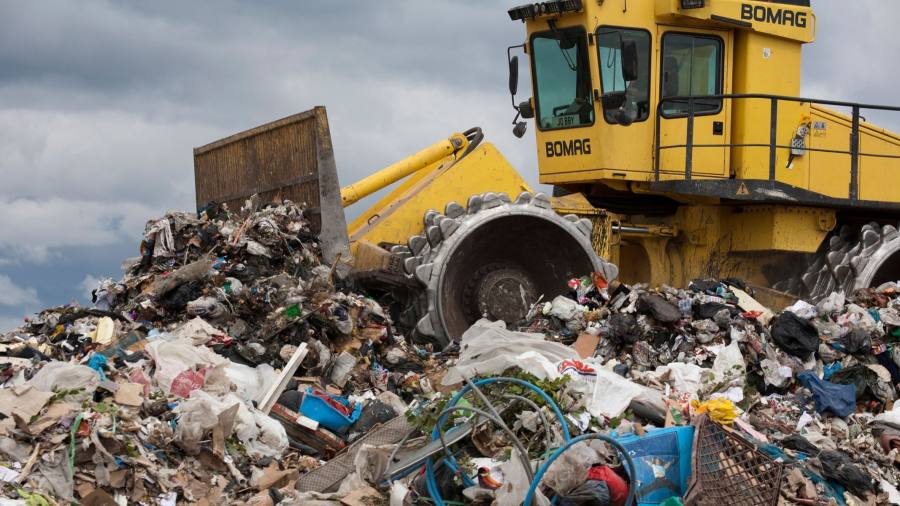
Receive free UK politics & policy updates
We’ll send you a myFT Daily Digest email rounding up the latest UK politics & policy news every morning.
Ministers do not have a plan for meeting waste targets in England more than four years after having outlined wide-ranging ambitions to reduce the amount that is thrown away, according to the UK government’s independent public spending watchdog.
Despite laying out a strategy in 2018 to cut waste, the government has not developed long-term delivery plans for doing so and is not able to assess progress towards the target owing to incomplete data, the National Audit Office said on Friday.
More than four years on, “effective delivery plans . . . do not yet exist,” the report said. “This is making it increasingly difficult for businesses to prepare for investment and regulatory changes that will be required.”
The disposal and treatment of waste accounted for around 6 per cent of the UK’s greenhouse gas emissions in 2021, largely in the form of the powerful greenhouse gas methane from landfills.
The findings echo those of a critical report from the Climate Change Committee, the government’s independent climate advisers, earlier this week warning that the UK was making “worryingly slow” progress cutting carbon emissions. It said policy development in the waste sector was “insufficient”.
The CCC called for “greater strategic co-ordination of plans to decarbonise the waste sector . . . including much greater emphasis on waste prevention.”
Household recycling rates in England have plateaued at just under 45 per cent over the past decade, according to the NAO. As a result, the government missed the target set while it was still a member of the EU to recycle 50 per cent of waste from households by 2020.
After setting out a broad strategy for reducing waste in 2018, the government took four years to set new, legally binding targets, based on 2019 levels, to halve the amount of residual waste sent to landfill and incineration by 2042.
According to the most recent official data from April last year, there has been little progress since in reducing residual waste from 2019 levels.
The watchdog also said the introduction of a scheme to reduce the amount of cardboard and plastic waste, which would force companies that use and produce packaging to cover the costs of collecting it from households and sorting for recycling, has been delayed by a year to 2024.
The watchdog added that by the government’s own estimates its wider collection and packaging reforms would still only go halfway to meeting the 2042 target.
Moreover, a lack of data meant the government did “not know what decisions about new interventions need to be made, and when, to ensure realistic timeframes for design, testing and implementation,” the NAO said.
The government said it was “pushing ahead” with the “programme of reforms to reduce waste and improve our use of resources,” which included banning certain single-use plastic items from October 2023.
“We have carefully considered the recommendations of the report and they will inform our approach as we continue to deliver on our environmental ambitions,” it added.